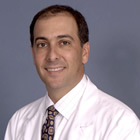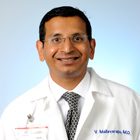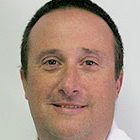What Is Echocardiography?
An “echo” is a painless procedure where sound waves create detailed pictures of the heart’s structures. It’s similar to an ultrasound used to visualize a baby in the womb, allowing doctors to see the heart’s size, shape, and how well it’s functioning. Typically, the probe is placed on the outside of the chest.
What Is an Echocardiogram Used to Diagnose?
An echocardiogram helps doctors diagnose a variety of heart conditions, including:
- Heart valve problems: Echocardiography can show if your heart valves are leaking or narrowing, which can affect blood flow.
- Heart muscle problems: The test can reveal weak or damaged heart muscle, which can lead to heart failure.
- Congenital heart defects: Echocardiography can detect abnormalities in the structure of your heart that you were born with.
- Pericardial effusion: This is a buildup of fluid around the heart, which can be caused by infection or inflammation.
Echocardiography Procedures
There are different types of echocardiography procedures, including a transthoracic, stress, and trans-esophageal echocardiogram, each providing different views of your heart:
- Trans-Esophageal Echocardiogram (TEE) – In certain situations, however, the images obtained by a trans-thoracic echo are not detailed enough. Since the esophagus runs close to the heart, an echo probe can be passed into this area, and higher-resolution images are obtained. This is known as a trans-esophageal echo. The procedure is performed under light sedation.
- Transthoracic echocardiogram (TTE): This is the most common type, where the technician places a transducer (probe) on your chest to send and receive sound waves.
- Stress echocardiogram: This TTE is done while you exercise on a treadmill or stationary bike to see how your heart works under stress.
What to Expect During an Echocardiogram
Getting an echocardiogram can be nerve-wracking if you’re unfamiliar with the process. But at AMS Cardiology, we’re here to walk you through what to expect.
Before the test:
- No special preparations are needed. You can eat and drink normally beforehand.
- Wear loose-fitting clothing that’s easy to remove from the waist up. You’ll be changing into a hospital gown during the test.
- Inform your doctor about any medications you’re taking, especially blood thinners.
During the test:
- You’ll lie on an exam table, usually on your left side. A pillow or wedge may be placed behind your back for comfort.
- Small sticky patches called electrodes will be attached to your chest and sometimes your legs to monitor your heart rhythm (this is an electrocardiogram or EKG).
- A sonographer (specially trained technician) will apply warm gel to your chest and then place a transducer (wand-like device) on top of the gel. This transducer sends sound waves that bounce off your heart, creating images on a monitor.
- You may feel slight pressure as the sonographer moves the transducer around to capture different views of your heart.
- You may need to hold your breath for a few seconds to get more precise images.
- The test usually takes 30 to 60 minutes.
After the test:
- You can usually go home right away.
- The sonographer will send the images to your doctor, who will discuss the results with you.
Why Choose AMS Cardiology for Echocardiogram?
Choosing the best facility throughout Abington and Montgomery County, PA, for an echocardiogram is a crucial decision that can impact the quality of care you receive. If you’re considering AMS Cardiology for your echocardiogram, there are several reasons why it might be an excellent choice:
- Expertise and Experience: AMS Cardiology has a team of highly skilled cardiologists. This specialization ensures that the professionals conducting your echocardiogram have in-depth knowledge and experience in cardiovascular health.
- State-of-the-Art Technology: AMS Cardiology invests in cutting-edge technology for accurate and detailed imaging. This is crucial for obtaining precise information about the structure and function of your heart.
- Patient-Centric Approach: AMS Cardiology is known for its patient-centric approach. This includes a focus on personalized care, clear communication, and a commitment to addressing your individual health needs.








